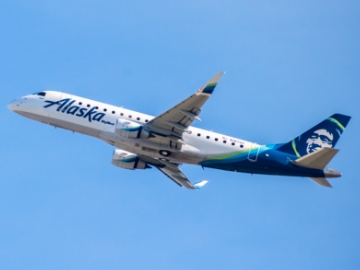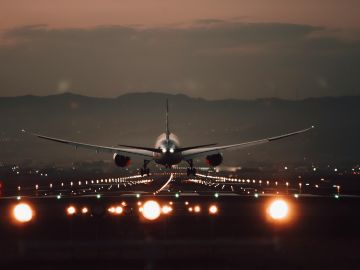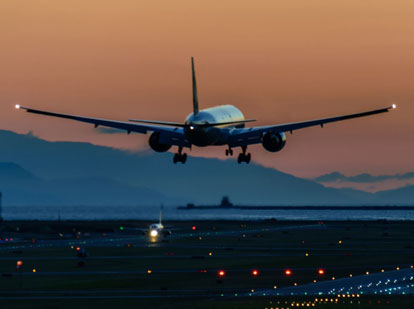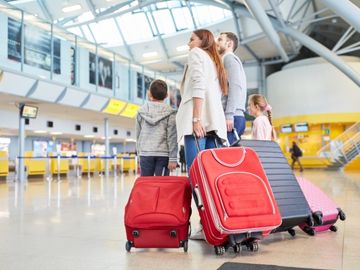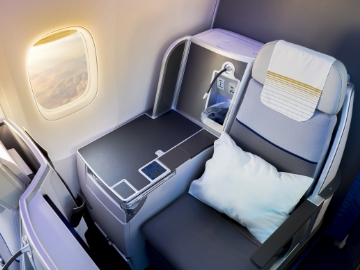
In the present day, it's not just you who is using AI
and innovative technologies to make your daily life more
convenient, efficient, and personalized. You will find this
transformative technology being used to enhance, improve,
and manage air travel effortlessly. For example, the
American Airlines flight that you fly on these days has
already implemented the use of AI and other emerging
technologies, which are working silently to make your travel
experience smoother and hassle-free. American Airlines uses
AI for crew scheduling, baggage forecasting, and smart
gating and has also collaborated with Google Research to
predict and reduce contrails for climate impact. Similarly,
other airlines are using various AI for their daily
operations and to improve passengers' overall
experience. Some of these AI technologies are Microsoft
Azure AI, PROS Dynamic Pricing AI, Connection Saver AI,
Skywise, FraportGPT, ConnectMe, and others.
Let us understand how AI and technological advancements are
transforming air travel. Learn how airlines are integrating
these advancements in the daily process of flight
operations, and other services such as passenger services,
flight scheduling, aircraft routing, crew scheduling, group
operations, passenger check-in and boarding, and baggage
handling.
How AI is Enhancing Passenger Experience?
Artificial intelligence’s integration by airlines has
enhanced various aspects of the passenger experience and
operational efficiency. The use of AI at airports by airline
companies has helped improve the passenger experience in
many ways.
AI-powered facial recognition systems:
In the present day, airports are using AI-powered facial recognition systems to ease the check-in and security process, which has substantially reduced the wait time and improved the convenience.
AI chatbots
Next, AI use has been integrated for personalized customer service, where AI chatbots are used to provide instant support, answer queries, and even assist with flight bookings and travel planning, almost mimicking human interaction without a flaw.
AI-driven climate control
Many airlines have started to use AI to improve the in-flight experience by integrating AI-driven climate control systems that adapt to individual passenger preferences for temperature and humidity, enhancing comfort during flights.
AI Technology for baggage handling
Last but not least, the most hectic and problematic service
that most passengers are hindered by, the baggage handling,
is also being optimized and taken care of by AI. Airlines
have been using AI that is coded to optimize baggage
routing, track luggage in real-time, and even identify
potential issues with carry-on baggage, helping to reduce
delays.
How is AI improving Operational Efficiency?
The use of AI is working to improve the passenger
experience. Airlines have also integrated this new computing
power into their daily operations. The most important aspect
before any flight is scheduled to fly to a certain
destination, the aircraft goes through a maintenance check.
Now, this process is being done by AI. Artificial
intelligence can now analyze data from aircraft sensors to
predict any potential mechanical issues, which helps
airlines to have a proactive maintenance check, avoid
accidents, and prevent costly downtime.
Have you ever thought that AI can help airlines save time,
money, and be efficient? Airlines such as Alaska Airlines,
Delta Air Lines, and United Airlines are using AI for
optimizing flights. This is done by an AI algorithm that
optimizes flight paths for fuel efficiency and reduces
travel time, contributing to sustainability and cost
savings. AI technology is also used to minimize delays and
improve overall safety. Airlines have implemented AI systems
to manage air traffic, which helps air traffic controllers
manage traffic flow more efficiently.
The next big impact of AI technology is its role in aircraft
design and manufacturing, where it is used to optimize
aerodynamic performance, reduce weight, and improve fuel
efficiency.
Innovations enhancing the travel experience?
As the new age of technology has hit us hard, many aspects
are still unknown. While numerous technologies are being
used on a day-to-day basis, from offices, surveillance
cameras, to the aviation sector, you will find many
innovative technologies being used to enhance the passenger
experience while flying. Let us discuss a few:
-
Biometrics is one innovation that most of us know. This
has streamlined the check-in, boarding, and immigration
process, using facial recognition and fingerprint
scanning. It enables contactless travel, reduces wait
time, and improves security. This upgrade is being used at
LAX, Orlando International, and Atlanta Hartsfield-Jackson
Airport.
-
RFID Baggage tracking technology used at airports is
something that has replaced barcodes and is helping to
accurately track passengers' baggage in real time via
a mobile app. This technology is presently used by Delta
Air Lines, which has helped them to reduce the problem of
lost luggage and has improved accountability.
-
Now, thanks to AI, navigating the airport has become
easier. Today, many airports have integrated augmented and
virtual reality technology that is now being used for
airport navigation. It helps promote safety demos to the
passengers and also serves as an in-flight entertainment
set. This upgraded AR/VR technology is currently being
used at Pittsburgh International and Cincinnati/Northern
Kentucky.
- JFK, Chicago O’Hare, and Dallas/Fort Worth are specific airports that are using a new technology to ease the check-in and bag drop service, the Self-Service Kiosks & Bag Drop. Here, passengers can check in and drop off bags independently using touchless kiosks, which have actually helped to reduce congestion and improve autonomy.
- New technologies have caught up with the wind of sustainability, which has led them to develop and use hybrid-electric engines that reduce fuel consumption and emissions. These systems use electric power during takeoff and climb, which has helped to improve efficiency and reduce noise pollution. Some of the aircraft manufacturers that are using this include Boeing and Airbus.
Airlines Using AI and Emerging Technology
Numerous leading airlines have integrated AI and new
technological advancements to improve the passenger
experience and their overall flight operations, at the
airport and during flight. Some of them are listed below:
- United Airlines integrated a Generative AI for delay explanations and real-time compensation. The airline also uses Connection Saver AI to hold flights for connecting passengers.
- Lufthansa has adopted Lufthansa Technik for predictive maintenance, AI-powered chatbots, and sentiment analysis.
- American Airlines uses AI for crew scheduling, baggage forecasting, and smart gating, and has also collaborated with Google Research to predict and reduce contrails and climate impact.
- Delta Airlines has opted a AI-driven concierge services, personalized entertainment, and dynamic pricing, and also uses reinforcement learning for HR and training systems.
Many other airlines have also adopted the use of artificial
intelligence to enhance the overall passenger experience
while flying with them. These advancements are something
that is just the start; within a few years, new technologies
will completely change how we travel, the time we take to
travel, and the efficiency and convenience.

